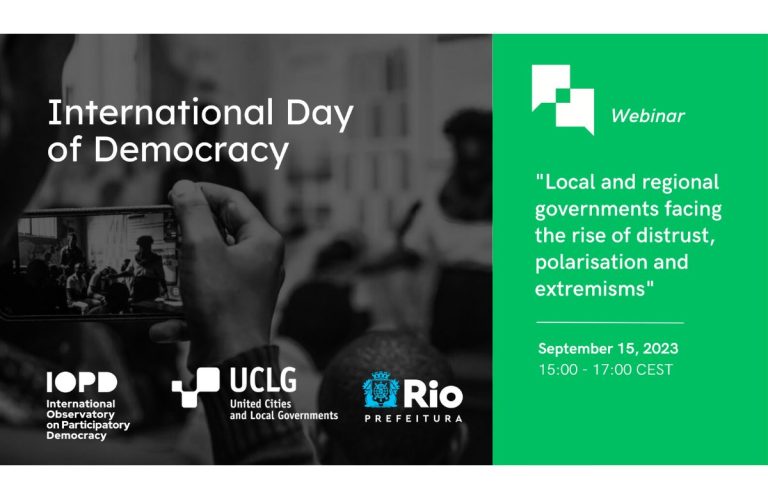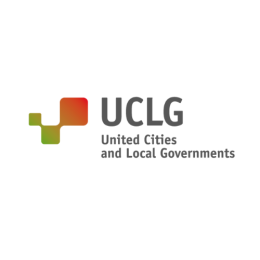The objective of this virtual session is to explore how distrust towards institutions and among citizens is growing due to the rise of disinformation, fake news and polarisation and how it impacts democracy. It also aims to present possible solutions through local participatory and deliberative democracy to address these challenges.
Guiding questions for the session:
- Are we facing a global regression of democracy? Is it a one-off crisis or a paradigm shift?
- What are the causes of this regression that we can observe by the loss of trust, rise of polarisation and extremism?
- What local and regional governments, with the support of civil society, can do to address this crisis?
- What significant actions should be taken globally (e.g. regulation of large digital platforms, improvement of multilevel governance…)?
Context:
In 2007 the United Nations General Assembly resolved to observe September 15 as the International Day of Democracy—to promote and uphold the principles of democracy—and invited all member states and organisations to commemorate the day in an appropriate manner that contributes to raising public awareness.
The International Observatory on Participatory Democracy (IOPD) organises this session on the International Day of Democracy 2023 to explore local and regional experiences in the context of the current global crisis of democracy, trust, public debate and information impacts all levels of government, but above all, to shed light on the possible solutions to reverse this crisis from local and regional governments with an international perspective.
We perceive an erosion and crisis of democracy with these symptoms and indicators:
- Degradation of public debate: the role of social media and the media concentration in large groups.
- The role of Artificial Intelligence in democracy: the rise of deep fakes, manipulation or opportunity? What regulation do we need?
- Increase in the violation of human rights.
- Erosion of trust in institutions (parliaments, governments, municipalities…) but also in the scientific community (climate change deniers, vaccination…) and with other citizens (polarisation, “archipelisation” of societies…).
- Violence against local elected officials.
Faced with this context, which is contagious globally, we want to explore some solutions that can be implemented from the local level to have national and global impacts by acting as a network:
- Deliberative and participatory democracy (citizen assemblies, spaces of deliberation where different people deliberate on concrete issues, empathise, share, and discuss argumentatively).
- Transparency and open government experiences.
- Proximity policies from local and regional governments.
- Promotion of civic education and democratic culture.
- Promote local, quality media, allowing a space for information and measured debate (fact checkers in social networks and media).
This webinar is part of the preparatory activities for the 21st IOPD Conference to be held in Rio de Janeiro from November 6 to 8 with the theme “Participatory Democracy for Diverse, Inclusive and Transparent Cities.” Furthermore, this webinar, which explores SDG 16 “Peace, justice and strong institutions”, takes place in the run-up to the 2023 SDG Summit, with the aim of providing high-level political guidance for transformative and accelerated action to advance towards the 2030 Agenda.


